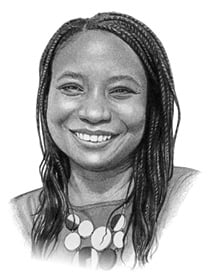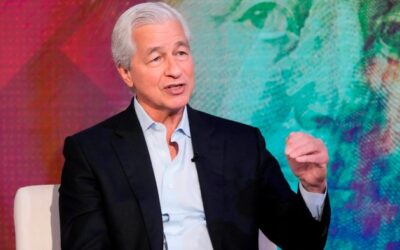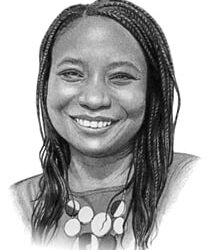Coup Leader Wins Gabon’s Presidential Election

Coup Leader Wins Gabon’s Presidential Election
Will the results signal a break from or a return to the old guard?
Gabonese presidential candidate Brice Oligui Nguema at his last campaign rally in Libreville, Gabon, on April 10, ahead of the election two days later. Daniel Beloumou Olomo/AFP via Getty Images
Welcome to Foreign Policy’s Africa Brief.
The highlights this week: Gabon’s presidential election is won by the man who led the country’s 2023 coup, Sudan enters its third year of civil war, and South Africa appoints a new envoy to mend ties with the United States.
Welcome to Foreign Policy’s Africa Brief.
The highlights this week: Gabon’s presidential election is won by the man who led the country’s 2023 coup, Sudan enters its third year of civil war, and South Africa appoints a new envoy to mend ties with the United States.
Coup Leader Wins by a Landslide in Gabon
Gen. Brice Oligui Nguema, who led a coup in Gabon in 2023, won the country’s presidential election on Saturday with more than 90 percent of the vote, according to preliminary results.
In August 2023, Nguema—the former head of the Gabonese Republican Guard, the country’s most powerful security force—ousted President Ali Bongo, ending more than 50 years of the Bongo dynasty.
Though Nguema has tried to distance himself from the old regime, his election ensures an extended familial grip on power: Nguema, formerly a military aide to Bongo’s father, is Bongo’s cousin, and the family’s Gabonese Democratic Party endorsed Nguema’s candidacy.
Voter turnout was 70.4 percent, according to the Interior Ministry. For the first time, Gabon allowed foreign media to document the ballot count, and international observers said that the election appeared fair and transparent.
Nguema’s landslide victory comes as little surprise to analysts. For one, he lacked a strong rival, and his critics say that he announced a quick election to give opponents less time to prepare. His closest challenger, Alain-Claude Bilie By Nze—the country’s last prime minister under Bongo—won just over 3 percent of the vote.
Another popular figure, trade unionist Jean-Rémy Yama, was barred from running because he could not produce his father’s birth certificate, a requirement for presidential candidates. (Yama has argued that he was deliberately excluded from the vote.)
Critics also say that Nguema replicated the “coup transition playbook” by revising Gabon’s electoral code, including by introducing an upper age limit of 70 that made his most popular rival, Albert Ondo Ossa, ineligible.
Ossa maintains that he won the country’s last election in 2023—in which Bongo also claimed victory, sparking calls for mass protests that ended with Bongo’s ouster. Ossa has previously dismissed Nguema’s power grab as a “palace revolution” and “family affair.”
Still, Gabonese citizens have reason to be drawn to Nguema’s platform. His transitional government comprised voices across the political spectrum, including former government figures and civil society critics. He campaigned on the promise of curbing graft and pledged to address youth unemployment, poor infrastructure, and the high cost of living.
Oil-rich Gabon boasts Africa’s third-highest GDP per capita, but inequality is rampant, and more than one-third of the country’s citizens live in poverty. The International Monetary Fund estimated last year that nearly 40 percent of young Gabonese were unemployed.
Nguema has carefully balanced his international and domestic profiles. Since the coup, he has sought to demonstrate that he can put Gabon’s needs first by nationalizing foreign-owned oil assets, including from British multinational Tullow and Assala Energy, which was owned by U.S. private equity firm Carlyle.
At the same time, Nguema has said that he intends to pursue an “assertive” foreign policy and will seek partnerships with China, France, and Russia. Nguema has also worked to strengthen trade ties with the United Arab Emirates. Over the weekend, he told Al Jazeera that the UAE is expected to open an embassy in Gabon soon.
And unlike other Francophone countries in Central and West Africa led by juntas, Nguema hasn’t kicked French troops out of Gabon entirely. Camp de Gaulle in the capital of Libreville is one of the few remaining French military bases in Africa, and it is now operated jointly with Gabon as a training center.
Despite Nguema’s many promises, some analysts remain skeptical that radical change will be possible under a leader who has long been part of the Bongo family’s inner circle.
The Week Ahead
Wednesday, April 16: The United Nations Security Council discusses its mission in South Sudan.
Thursday, April 17: The U.N. Security Council discusses sanctions against Libya.
Thursday, April 17, to Friday, April 18: The Liberia-EU Business Forum is held in Brussels.
What We’re Watching
Two years of Sudan’s civil war. Tuesday marked two years since war broke out between the Sudanese Armed Forces and the paramilitary Rapid Support Forces (RSF). The conflict has killed around 150,000 people, displaced more than 14 million, and left more than 25 million—around half of Sudan’s population—facing extreme levels of hunger.
In recent days, around 400,000 people fled Sudan’s largest refugee camp after the RSF overran the camp and surrounding areas in the country’s Darfur region. More than 400 people have been killed in RSF attacks around El Fasher, the last major city in Darfur held by Sudan’s military, that began last week.
On Tuesday, the United Kingdom hosted a Sudan peace conference, attended by foreign ministers from around 15 countries but not the warring parties. The British government faces domestic criticism for selling arms to the UAE, which backs the RSF. The government of Sudan has accused the UAE of facilitating genocide in a case before the International Court of Justice.
South Africa’s new envoy. South Africa appointed former Deputy Finance Minister Mcebisi Jonas as special envoy to the United States on Monday. Jonas will attempt to mend relations with Washington, which have deteriorated quickly since U.S. President Donald Trump took office.
In March, the United States expelled South Africa’s ambassador, Ebrahim Rasool, who has been critical of Trump and of Israel. Rasool said in an online lecture last month that Trump was “mobilizing a supremacism” in the United States. Rasool, who is of mixed heritage, was evicted from his home in Cape Town as a child after the apartheid government declared it a white-only area.
Jonas is seen as a businessman who can navigate Trump’s transactional approach to diplomacy. He is currently an independent non-executive chairman of MTN Group, Africa’s largest mobile network operator, and he will keep the position alongside his new role. Yet Jonas’s previous comments criticizing Trump have worried South African media outlets, too.
Attacks in Goma. Clashes between the Democratic Republic of the Congo’s military and the Rwanda-backed M23 rebel group killed at least 50 people over the weekend in the eastern Congolese city of Goma, which M23 seized in January.
The fighting marks an escalation in the conflict—which, according to a recent report by UNICEF, is defined by sexual violence. The escalation is a blow to ongoing mediation talks. Last week, a Congolese delegation met with M23 rebels in Doha, Qatar, to discuss a potential cease-fire.
The Congolese government is also dealing with floods that have killed dozens of people and displaced around 5,000 in Kinshasa, the capital.
TPS ends for Cameroonians. Around 8,000 Cameroonians will lose Temporary Protected Status (TPS), a designation shielding them from deportation due to unsafe conditions in their home country, the U.S. Department of Homeland Security said last Friday.
The move will allow deportations starting on June 7, when the current designation expires. The Trump administration effectively ended TPS earlier this month for South Sudanese nationals in the United States when it revoked all visas for South Sudanese passport holders. South Sudan is one of several African nations in which the Trump administration is considering closing its embassy, CNN reported on Tuesday.
This Week in Tech
Starlink arrives in Somalia. Elon Musk’s Starlink satellite internet is now available in Somalia, the billionaire owner wrote on X on Sunday. Somalia issued Starlink the license to operate after more than two years of negotiations.
Musk has sought to fill the massive gap in broadband connectivity across Africa, which is the world’s least connected region. As Starlink has aggressively pushed into the broadband market in around 20 African countries, it has faced criticism that it has an unfair advantage over local providers, rarely invests in African network infrastructure, and hires few local employees.
Last month, Nigeria said that Starlink had become the country’s second-largest internet service provider; on Monday, the company gained a license to operate in Lesotho. But in Nigeria and elsewhere, Starlink faces regular connectivity issues due to a lack of infrastructure.
Meanwhile, Musk has faced difficulty getting regulatory approval to expand Starlink into South Africa due to his refusal to comply with the country’s ownership laws, which aim to address the legacy of apartheid. One South African official, however, is looking to tweak the requirements for Starlink and other providers, according to recent New York Times reporting.
FP’s Most Read This Week
- How to Ruin a Country by Stephen M. Walt
- Why Beijing Thinks It Can Beat Trump by Scott Kennedy
- Why Don’t Russian Soldiers Revolt? by Amelie Tolvin
What We’re Reading
Kenya restarts Chinese rail project. Kenya signed a new contract with the Export-Import Bank of China and a Chinese-owned engineering company to extend the stalled Standard Gauge Railway to neighboring Uganda, despite previous lawsuits and a graft investigation that marred the multibillion-dollar project, Jevans Nyabiage reports in the South China Morning Post.
Last week, Kenya also canceled a $1.4 billion highway expansion deal with a consortium led by a French company. Government sources told Reuters that the contract will go to a Chinese company instead.
Japan’s African samurai. The soundtrack of Assassin’s Creed Shadows, a new video game set in 16th-century Japan, is heavily influenced by East African music, Emmanuel Esomnofu writes in OkayAfrica. Yasuke, one of the game’s protagonists, is based on a real-life African samurai who served under Japanese warlord Oda Nobunaga.
According to Esomnofu, the production team used “a host of traditional Japanese flutes, East African rhythms, psych rock, and other sounds” to support the game’s storyline. The lead track, “Ukombozi Pt. I,” is primarily sung in Swahili by British Tanzanian musician Tiggs Da Author.
Nosmot Gbadamosi is a multimedia journalist and the writer of Foreign Policy’s weekly Africa Brief. She has reported on human rights, the environment, and sustainable development from across the African continent. X: @nosmotg
More from Foreign Policy
-

U.S. President Donald Trump gives a thumbs-up upon arrival at Joint Base Andrews in Maryland after spending the weekend at Mar-a-Lago. How to Ruin a Country
A step-by-step guide to Donald Trump’s destruction of U.S. foreign policy.
-

Chinese President Xi Jinping arrives for a meeting with Vietnamese National Assembly Chairman Tran Thanh Man in Hanoi on April 14. Why Beijing Is Standing Up to Trump
Chinese leaders have their pride, too.
-

Russian soldiers practice marching Why Don’t Russian Soldiers Revolt?
Astonishing death rates and brutal abuse have not kept troops from following orders.
-

An illustration shows a police officer trying to sudue a panicked mob of men. The Awful History of Tariffs and Depressions
What the 19th century teaches us about what happens next.









Join the Conversation
Commenting on this and other recent articles is just one benefit of a Foreign Policy subscription.
Already a subscriber?
.
Subscribe
Subscribe
View Comments
Join the Conversation
Join the conversation on this and other recent Foreign Policy articles when you subscribe now.
Subscribe
Subscribe
Not your account?
View Comments
Join the Conversation
Please follow our comment guidelines, stay on topic, and be civil, courteous, and respectful of others’ beliefs.
Change your username |
Log out
Change your username:
CANCEL
Confirm your username to get started.
The default username below has been generated using the first name and last initial on your FP subscriber account. Usernames may be updated at any time and must not contain inappropriate or offensive language.